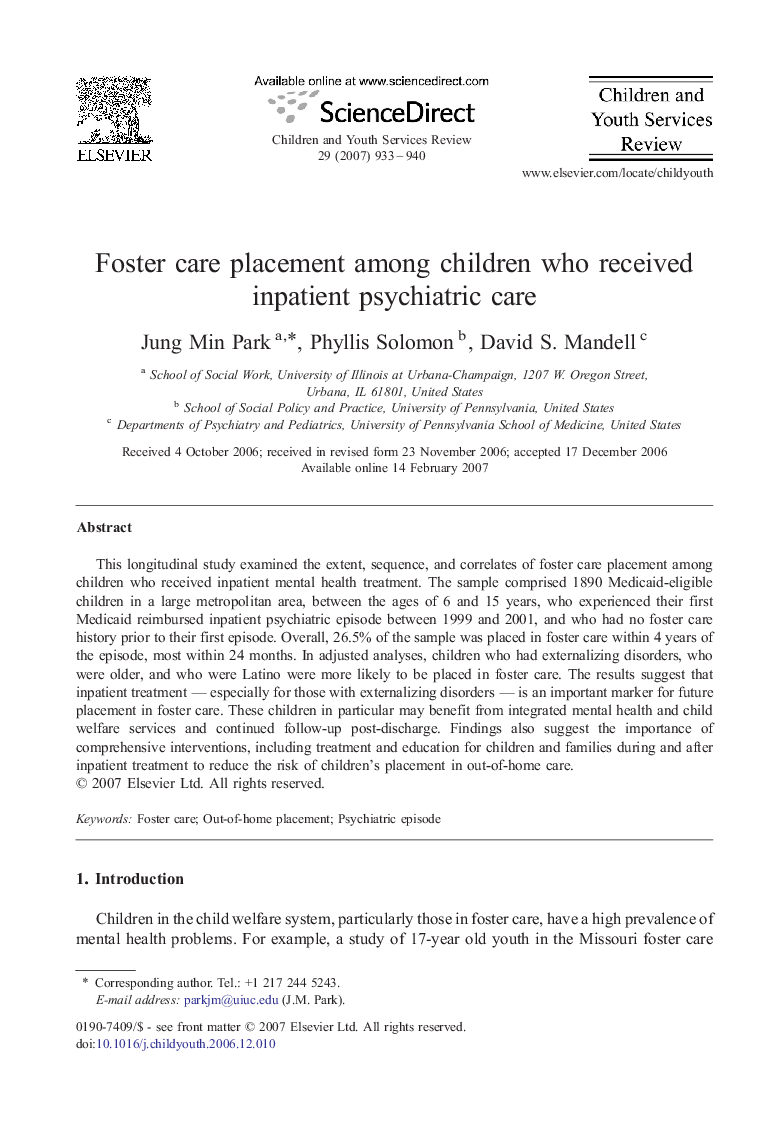| Article ID | Journal | Published Year | Pages | File Type |
|---|---|---|---|---|
| 347610 | Children and Youth Services Review | 2007 | 8 Pages |
This longitudinal study examined the extent, sequence, and correlates of foster care placement among children who received inpatient mental health treatment. The sample comprised 1890 Medicaid-eligible children in a large metropolitan area, between the ages of 6 and 15 years, who experienced their first Medicaid reimbursed inpatient psychiatric episode between 1999 and 2001, and who had no foster care history prior to their first episode. Overall, 26.5% of the sample was placed in foster care within 4 years of the episode, most within 24 months. In adjusted analyses, children who had externalizing disorders, who were older, and who were Latino were more likely to be placed in foster care. The results suggest that inpatient treatment — especially for those with externalizing disorders — is an important marker for future placement in foster care. These children in particular may benefit from integrated mental health and child welfare services and continued follow-up post-discharge. Findings also suggest the importance of comprehensive interventions, including treatment and education for children and families during and after inpatient treatment to reduce the risk of children's placement in out-of-home care.
